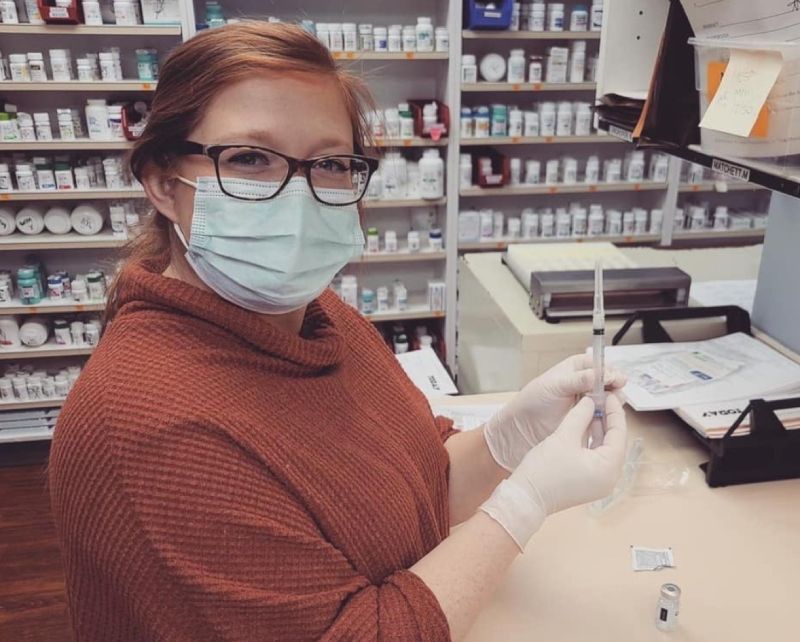10 Best Pre-Med Schools in the U.S. [+ How to Choose the Right Program]
Choosing the right pre-med program is one of the first — and most important — steps you’ll take as part of your journey to medical school. And with so many colleges and universities offering strong pre-med tracks, it can sometimes be challenging to choose where to enroll.
The top pre-med schools in the U.S. are known for their rigorous academics, ample research opportunities, and personalized advising to help students prepare for what lies ahead. In this guide, we’ll take a closer look at 10 of these programs from the country’s top schools for pre-med students, plus how to choose a pre-med program, what the curriculum entails, and what you’ll need to do to prepare for medical school.
Pre-Med 101: What Is It & Why Is It Important?
Before starting medical school, you’ll need to fulfill certain prerequisites. One of these is completing the pre-med track as part of your undergraduate studies. Contrary to popular belief, pre-med is not a formal major; rather, it’s an educational path that includes a specific set of courses and requirements designed to prepare you for medical school. This track typically includes coursework in subjects such as biology, chemistry, biochemistry, physics, and math — disciplines that provide the foundational knowledge needed to succeed in medical school and on the Medical College Admission Test (MCAT).
In addition to the quality of the relevant science departments, one of the key factors that sets the best pre-med programs apart is the availability of extracurricular activities. Schools that excel in pre-med education often offer students access to valuable experiences like job shadowing with doctors or other physicians, internships in healthcare settings, and opportunities to conduct medical research. These activities can help you gain practical experience, build your resume, and explore your passion for medicine outside of the classroom.
It’s also important to note that you don’t necessarily need a science-based degree to attend medical school. Many students major in non-medical concentrations — such as psychology, engineering, or even the humanities — and still go on to have successful medical careers. However, regardless of your major, fulfilling the pre-med course requirements is non-negotiable if you want to be admitted to medical school as these courses ensure that you’ll be well-prepared for the rigor and demands of a medical education.
How To Choose a Pre-Med Program
Choosing the right pre-med program can make all the difference in your success in medical school and beyond. With so many to choose from, it’s important to carefully evaluate each program on your list of potential matches to find the best fit for your goals. Here’s what to consider when making your decision:
School Rankings
While a school’s ranking shouldn’t be the only factor in your decision-making process, this statistic can provide a certain degree of insight into the reputation and quality of its pre-med program. Schools with strong national rankings often have top pre-med programs that are well established, employ experienced faculty, and have a track record of student success.
Medical School Acceptance Data
One of the most telling indicators of a strong pre-med program is its graduates’ success rate. Take a close look at the percentage of pre-med students from each college or university you’re considering who get accepted into medical school. It can also be helpful to go one step further and find out where these students end up, as alumni of high-quality programs will typically go on to attend prestigious medical schools.
Health Professions Advising
Navigating the pre-med path isn’t always easy, so having access to specialized advising can help you stay on track. Many schools with top programs have a dedicated advising office specifically to help students pursuing health-related careers. The advisors who work in these offices can help you with everything from choosing the right classes and deciding when to take them to providing guidance on internships and extracurricular activities and assisting with the medical school application process.
The Strength of the School’s Science Programs
Many pre-med students choose to major in science-related fields, which means that the strength of a school’s science programs should be a top consideration. This still holds true even if you opt to earn your undergraduate degree in a concentration outside of the sciences, since the classes you’ll take as part of your pre-med coursework will be largely science-based. Look into the faculty, research facilities, and course offerings in these departments to ensure you’ll receive a top-tier education that prepares you for medical school.
Opportunities for Research
Having research experience can give you an advantage when applying to medical school (and beyond), so choosing a program that offers research opportunities is always a good idea. Look fr schools that encourage undergraduates to take part in research projects, either within their own science departments or through external partnerships with hospitals and medical centers.
Pre-Med Program Requirements
While the exact course requirements for pre-med students vary by institution, most programs follow a similar structure. Below are some of the core courses you can expect to take as part of the pre-med track:
Biology, Chemistry, or Physics
These foundational sciences form the backbone of any pre-med curriculum. Biology helps students understand the basic mechanisms of life, while chemistry provides insight into the molecular processes that sustain it. Physics, on the other hand, offers a grasp of the physical principles that determine the body’s functions as well as technologies used in medicine. Most programs require at least one year of each of these subjects, often with accompanying lab work.
Organic Chemistry
Completing coursework in organic chemistry is an absolute must before heading to medical school. It focuses on the structure, properties, and reactions of organic compounds, many of which are fundamental to biological systems. A thorough comprehension of this subject is essential for understanding drug interactions, metabolism, and other key functions in the human body.
Biochemistry
Biochemistry serves as a bridge between biology and chemistry, exploring the chemical processes that occur within living organisms. This subject explores life on a molecular scale through close examination of biomolecules such as proteins, DNA, and cellular components.
English
Strong communication skills are crucial for medical professionals, and most pre-med programs require students to take at least one year of English or another writing-intensive course. These classes help to develop the ability to write clearly, think critically, and communicate effectively.
Math
Pre-med programs typically include a mathematics component, with the most commonly required courses being calculus and/or statistics. These subjects help students understand the data-driven aspects of modern medicine, from interpreting clinical research to analyzing medical data.
Preparing for Medical School
Beyond satisfying course requirements, there are several additional steps you can take to strengthen your medical school application and prepare for the road ahead. These opportunities will help you build a well-rounded profile that stands out to admissions officers. Here’s how you can get ready:
Enroll in a Certificate Course
Completing a certificate course can give you an academic edge and further your understanding of pre-med concepts. Certificate programs, such as the pre-med certificates offered by Advanced eClinical Training, focus on areas like patient care, healthcare ethics, and laboratory and diagnostic techniques, among others. These courses not only supplement your knowledge but can also demonstrate your commitment to medicine.
Choose a Relevant Major
While it’s possible to apply to medical school with a degree outside of the sciences, many pre-med students opt for majors that align closely with the medical field. Subjects such as biology, chemistry, or neuroscience will provide you with solid foundational knowledge of the sciences you’ll encounter in medical school.
Seek Out Specialized Research Opportunities
By taking part in research opportunities, especially in specialized areas of medicine, you’ll develop your critical thinking skills and get firsthand experience with scientific methodologies. Look for opportunities that match your interests, whether through your school’s science departments or elsewhere.
Get Involved in Extracurricular Activities
Involvement in activities outside of the classroom is another way to strengthen your medical school application. For example, joining a pre-med club, working with a health-related organization, volunteering at a local hospital, or helping to spearhead public health initiatives provides practical experience and networking opportunities with like-minded peers and professionals.
The Top 10 Pre-Med Colleges in the U.S.
Choosing the right pre-med program is the first step you’ll take toward a successful medical career. The following universities, organized alphabetically, are widely recognized for their exceptional pre-med tracks, each offering unique resources and opportunities to help their students along the way to medical school.
1. Boston University
BU has a strong pre-med program that emphasizes hands-on experience and research. Students are encouraged to take advantage of the university’s connections with major hospitals in Boston (which also happen to be some of the top medical institutions in the country), making it easy to find internships, shadowing, or volunteer opportunities.
- Acceptance rate: 11%
- Average SAT/ACT: Between 1400 and 1520 (SAT) or between 32 and 34 (ACT)
- Acceptance rate for students applying to medical school: 80%
- Tuition: $66,670
2. Columbia University
Columbia provides pre-med students with access to high-quality research opportunities and internships at its affiliated hospitals. The university’s Manhattan location also puts students in close proximity to world-class medical institutions, where volunteer and external internship opportunities are numerous.
- Acceptance rate: 4%
- Average SAT/ACT: Between 1500 and 1560 (SAT) or between 34 and 35 (ACT)
- Acceptance rate for students applying to medical school: 91%
- Tuition: $71,170
3. Duke University
Duke offers a well-rounded pre-med track that emphasizes both research and clinical experience. The university also offers a unique health-centered study abroad program as well as guidance and advice via the Office of Health Professions Advising.
- Acceptance rate: 7%
- Average SAT/ACT: Between 1520 and 1570 (SAT) or between 34 and 35 (ACT)
- Acceptance rate for students applying to medical school: 85%
- Tuition: $66,326
4. Georgetown University
Georgetown offers a well-regarded pre-med program at its School of Nursing & Health Studies (NHS). Throughout their time in the program, students will work closely with dedicated academic and faculty advisors to ensure their studies stay on-track. Additionally, NHS undergraduate students are invited to take part in the Early Assurance Program, which permits them to apply early for admission to the Georgetown University School of Medicine.
- Acceptance rate: 11%
- Average SAT/ACT: Between 1400 and 1520 (SAT) or between 32 and 34 (ACT)
- Acceptance rate for students applying to medical school: 80%
- Tuition: $67,824
5. Harvard University
For pre-med students, Harvard offers rigorous academics and world-class research opportunities. And with strong ties to the nearby Harvard Medical School and affiliated hospitals, pre-med students have ready access to shadowing and internship experiences. The university’s advising services also offer support throughout the med school application process.
- Acceptance rate: 3%
- Average SAT/ACT: Between 1500 and 1580 (SAT) or between 34 and 36 (ACT)
- Acceptance rate for students applying to medical school: 93%
- Tuition: $56,550
6. Johns Hopkins University
Johns Hopkins is primarily known for its top medical programs, and its pre-med students benefit from the university’s close ties with the Johns Hopkins School of Medicine. The university’s research opportunities, particularly in biomedical sciences, are some of the best in the United States.
- Acceptance rate: 8%
- Average SAT/ACT: Between 1530 and 1580 (SAT) or between 34 and 35 (ACT)
- Acceptance rate for students applying to medical school: 70%
- Tuition: $64,730
7. Stanford University
Stanford’s pre-med program is known for being flexible, with several ways students can fulfill course requirements while following their interests. Students also have access to modern research facilities and clinical internships through Stanford Medicine, one of the country’s top medical schools.
- Acceptance rate: 13%
- Average SAT/ACT: Between 1390 and 1550 (SAT) or between 32 and 34 (ACT)
- Acceptance rate for students applying to medical school: 75%
- Tuition: $65,910
8. The University of Chicago
The University of Chicago offers a rigorous pre-med curriculum, complemented by access to internships and shadowing opportunities at top medical institutions. Its pre-health advising services provide a wealth of resources to help students along the path to medical school, including detailed timelines, a mentorship program, personalized advising, and more.
- Acceptance rate: 5%
- Average SAT/ACT: Between 1510 and 1570 (SAT) or between 34 and 35 (ACT)
- Acceptance rate for students applying to medical school: 82%
- Tuition: $67,446
9. The University of North Carolina, Chapel Hill
UNC at Chapel Hill offers a quality pre-med program at a more affordable price compared to the other schools on this list. In addition to lower tuition, students benefit from the school’s connection to the UNC School of Medicine and its Office of Health Professions Advising.
- Acceptance rate: 19%
- Average SAT/ACT: Between 1370 and 1530 (SAT) or between 30 and 34 (ACT)
- Acceptance rate for students applying to medical school: 90%
- Tuition: $9,003 (North Carolina residents), $41,211 (Non-resident)
10. The University of Pennsylvania
UPenn is highly regarded for its academic excellence, including its science departments, which consistently earn top rankings. The nearby Perelman School of Medicine also affords ample opportunity for undergraduate research. Finally, the university’s Career Services office offers personalized support and several resources for students pursuing careers in medicine.
- Acceptance rate: 6%
- Average SAT/ACT: Between 1500 and 1570 (SAT) or between 34 and 35 (ACT)
- Acceptance rate for students applying to medical school: 78%
- Tuition: $60,920
FAQs
Do you have to complete a pre-med program to go to medical school?
Yes. Courses included in the pre-med track are considered prerequisites for medical school and must be completed in order to be considered for admission.
What GPA do you need to get into a pre-med program?
Exact GPA requirements will vary between colleges and universities. While a 3.
What else can you do with a pre-med degree?
Not all students who complete the pre-med track continue on to medical school.
How can I choose the best pre-med program?
When selecting a pre-med program, it’s important to choose the one that will best help you achieve your goals and is a good fit.
What are pre-med course requirements?
Exact curricula tend to vary between schools, but expect to take courses in biology, chemistry, physics, organic chemistry, biochemistry, English, and math.
Do I need to take the MCAT to go to medical school?
Yes.
Your Path to Medical School
Choosing the right pre-med program can set the stage for your success in medical school and beyond. The schools highlighted here offer outstanding academic resources and opportunities that will give you a competitive edge at application time, but ultimately, the best fit will depend on your individual goals and preferences.
If you’re looking for more ways to make your medical school application stand out to admissions officers, enrolling in a pre-med certification course can help demonstrate your passion for the field of medicine. At Advanced eClinical Training, our online healthcare programs are nationally accredited and provide the practical training you need to excel in your future career.
Not sure which course is right for you? No problem — our free eBook, 34 Questions to Ask When Selecting a Medical Training Program, can help you narrow down your options. Download your copy today.


